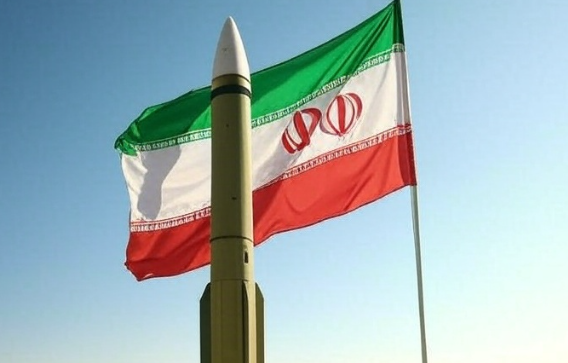Israel-Iran War Escalates:Tensions in the Middle East have reached a boiling point as Israel launches a massive airstrike operation targeting Iran’s nuclear and military infrastructure. Top Iranian leaders, including the Armed Forces Chief and Revolutionary Guards commander, have been killed. Explosions rocked Tehran and Natanz, while airspace closures and civilian casualties have escalated fears of a regional war. Israel’s Operation Rising Lion aims to dismantle Iran’s nuclear capabilities, with U.S. President Trump confirming prior knowledge but denying military involvement. The world now watches anxiously as both nations brace for retaliation.
Israel-Iran War Escalates
In a major escalation of tensions in the Middle East, Israeli airstrikes have struck deep into Iran, targeting nuclear sites, military installations, and senior figures of the Iranian leadership. The operation, confirmed by both Israeli and Iranian sources, has triggered a global wave of concern over the possibility of an all-out regional war.
Iranian Supreme Leader Ayatollah Ali Khamenei issued a stark warning in response to the attacks, declaring that Israel would face “severe consequences” for what he described as a grave crime. He warned that Israel had now set itself on a path toward a “bitter and painful fate,” and assured that retribution would be inevitable.
“The Zionist regime has committed a crime in our dear country today at dawn with its satanic, bloodstained hands,” Khamenei said on X, saying that Israel “has revealed its malicious nature even more than before by targeting residential areas.” In response to their attacks, Khamenei said the “regime should anticipate a severe punishment.” “By God’s grace, the powerful arm of the Islamic Republic’s Armed Forces won’t let them go unpunished,” he said.
Iranian state broadcaster and multiple official sources confirmed that several high-profile Iranian figures were killed in the strikes. Among the deceased are Iran’s Armed Forces Chief of Staff, Mohammad Bagheri, and Revolutionary Guards leader Hossein Salami. Additionally, senior Revolutionary Guards commander Gholam Ali Rashid and top nuclear scientists Fereydoon Abbasi-Davani and Mohammad Mehdi Tehranchi were also reportedly killed.
Massive explosions were heard across Iran, especially in the capital, Tehran. State TV reported that Israeli airstrikes targeted three key military sites in Iran’s northwest. One of the most significant hits included a vital installation belonging to the Islamic Revolutionary Guard Corps (IRGC), with plumes of fire and smoke rising into the air.
In central Iran, the city of Natanz—home to the country’s main nuclear enrichment facility—was also targeted, with loud explosions rocking the area. Residential buildings in Tehran were not spared, and several were reportedly struck, leading to the deaths of numerous civilians, including women and children.
Israeli Prime Minister Benjamin Netanyahu stated that the strikes were aimed at crippling Iran’s nuclear weapons program. “We struck at the heart of Iran’s nuclear weaponization program,” Netanyahu announced, emphasizing that the main enrichment facility in Natanz and leading Iranian nuclear scientists were specific targets of the operation. He also noted that strikes had been made on Iran’s ballistic missile infrastructure.
The operation comes in the wake of warnings by U.S. President Donald Trump about a potentially massive conflict in the region. Trump confirmed in an interview with Fox News that he was informed about the Israeli operation in advance but reiterated that the United States was not militarily involved. Trump stressed that Iran “cannot have a nuclear bomb” and expressed hope that the Islamic Republic would return to the negotiating table. Commenting on the Iranian leaders who were killed, he added that “they will not be coming back.”
As the airstrikes unfolded, Tehran’s main international airport, Imam Khomeini, suspended all flights. Neighboring Iraq followed suit, closing its airspace and halting all air travel. Meanwhile, Israel also declared a state of emergency, closing its airspace amid growing fears of Iranian retaliation.
Israeli Defense Minister Yoav Gallant warned of a possible response from Tehran and stressed that the country was on high alert. Israel’s military chief of staff Herzi Halevi announced the launch of “Operation Rising Lion,” describing it as a historic campaign aimed at neutralizing the existential threat posed by Iran. He stated, “We launched this attack because the time has come. We are at the point of no return.”
To prepare for potential retaliation, Israel has mobilized tens of thousands of troops and civilians in cities like Tel Aviv have begun stocking up on essential supplies.
The situation remains volatile as both nations brace for what could become a prolonged and highly destructive conflict. The global community is now watching closely, hoping to avert a wider war in an already turbulent region.
Disclaimer:
This blog is intended for informational purposes only. The content is based on publicly available news reports and official statements at the time of writing. While efforts have been made to ensure accuracy, the situation is rapidly evolving, and new information may emerge. Readers are encouraged to follow updates from reliable news sources. The blog does not endorse or take sides in any political or military conflict.

